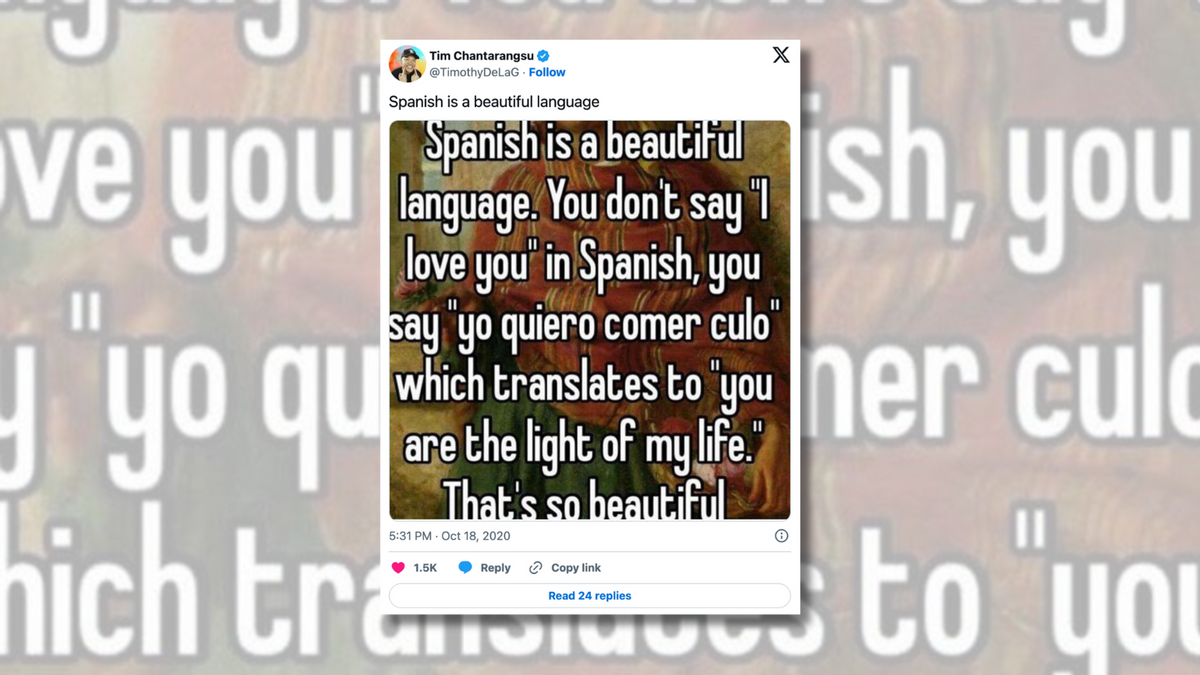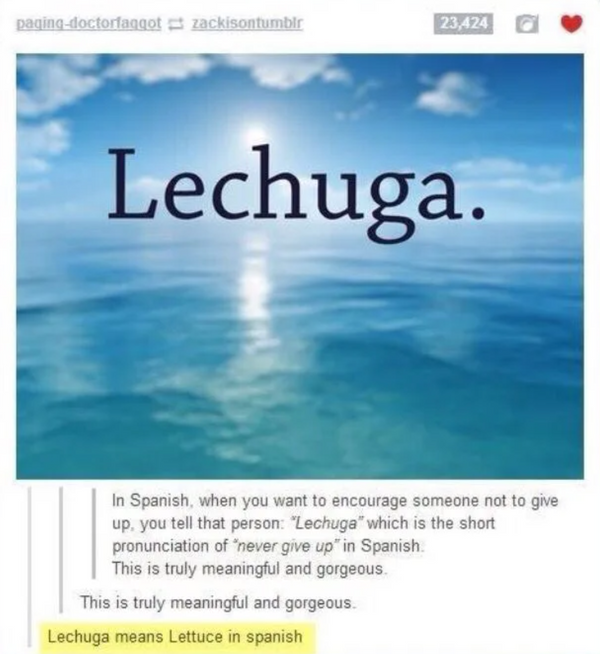Fact Check: Here's Why You Shouldn't Trust Memes on How to Say 'I Love You' in Spanish

Claim:
Instead of saying “I love you” in Spanish, you say “Yo quiero comer culo,” which in English means “You are the light of my life.”
Rating:
On Jan. 30, 2024, an image was shared on Imgur claiming that instead of saying “I love you” in Spanish, you say “Yo quiero comer culo,” which supposedly means “You are the light of my life” in English. We found that the rumor had circulated on social media since at least 2014, gaining a lot of online attention. Just one post with the claim shared on X (formerly Twitter) in October 2020 accumulated more than 1 million views.
Spanish is a beautiful language pic.twitter.com/ZaAwjZAanP
— Tim Chantarangsu (@TimothyDeLaG) October 18, 2020
Google reverse-image search results showed that this and similar memes carrying the same message have also been shared many times on platforms such as Instagram, Pinterest, and Reddit. Moreover, TinEye search results indicated the meme above has been shared online at least since 2016.
Posts from the whitepeopletwitter
community on Reddit
To set the record straight, let’s look at the accurate translations of the phrases in question:
“I love you” in Spanish is “te quiero” or “te amo.” Both phrases are common expressions of love, with “te amo” being a bit more intense and deep.
“Yo quiero comer culo” translates to “I want to eat a**” in English, which is a vulgar expression and not synonymous with "I love you."
“You are the light of my life” is translated to “Eres la luz de mi vida” in Spanish, so it is not a translation of the “Yo quiero comer culo,” as claimed in the social media posts.
In short, the claim is false, and it attained internet popularity as a linguistic prank.
Although some social media users seemingly understood the viral image was intended to be a joke, it's possible that non-Spanish speakers may take the phrase at face value. The misleading translation could lead to an embarrassing situation — that is, someone trying to make a romantic expression when the words they're using aren't that.
Similar memes based on incorrect translations are frequently shared online. For instance, some social media posts claim the Spanish word "lechuga" means "never give up" in English — while, in reality, it just means "lettuce."

(9GAG user jdthecakeman)



